This post may contain affiliate links. At no cost to you, purchases made through these links may result in a small commission for Traveling Transylvania. We never recommend products that we don’t know and trust. Thank you for your continued support!
Romania is a seriously beautiful, highly underrated country in the Balkans. Its natural beauty, friendly people, affordability, and high-quality internet speeds make it an excellent option for moving to Europe – particularly for Digital Nomads or remote workers. Here’s an all-encompassing list of everything you need to know before moving to Romania, as well as a bit about the realities of living in Romania.
Disclaimer: This has been my experience and of course there may be exceptions to things.
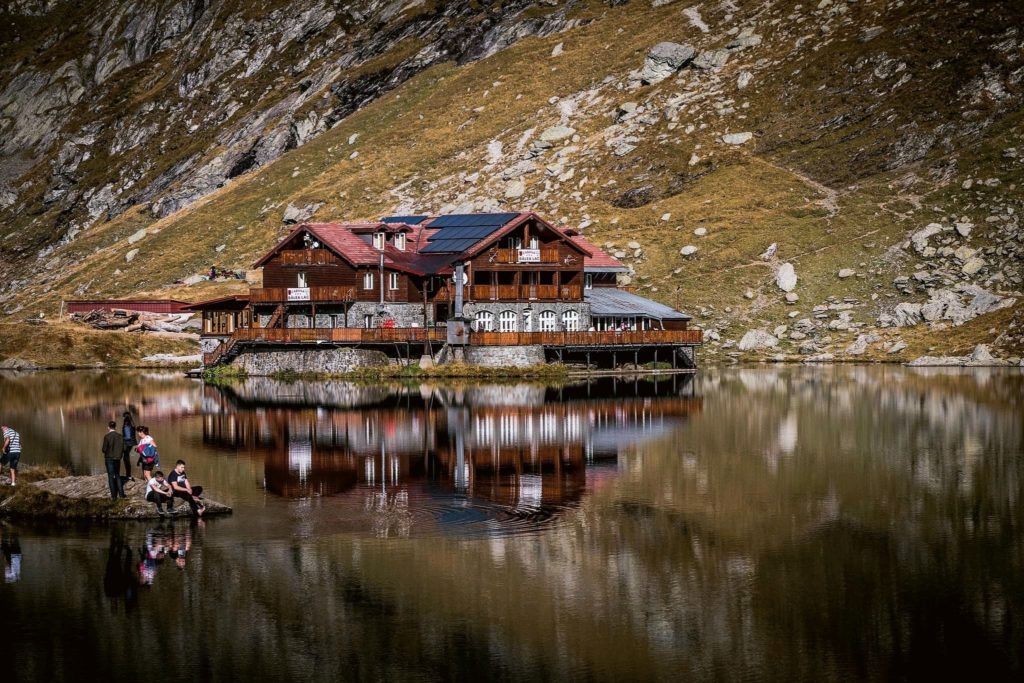
- 26 things i wish i knew before moving to romania
- super-fast internet
- currency
- affordability
- driving
- schengen status
- romanian language
- roma vs. romanian
- receiving packages
- vegan / vegetarian food
- how to drink pălincă
- train travel
- wood mafia
- troubled history
- electricity & outlets
- taxis & uber
- the food
- abundance of natural beauty
- UNESCO sites
- village life
- safety
- helpful people
- don't go to bucharest first
- you can still enjoy the seaside!
- tampons
- be prepared to discuss your income
- last names first
- apartment hunting in romania
- pin it
26 things i wish i knew before moving to romania
super-fast internet
When I first decided I would go to Romania (for what I thought would only be two months), I had to inquire to my potential Airbnb hosts as to the WiFi speeds due to my online work. This was a major thing I had to know before moving to Romania.
Let me tell you – Romanians are proud of their internet speeds. It is some of the best in Europe (the fixed broadband speeds are ranked 5th in the world!). So if you need reliable and fast internet connections, Romanian cities won’t disappoint.
currency
Romanian currency is leu (lei plural) which literally translates to lion. You will also see prices listed in RON in exchanges, but it’s the same thing. Their bills are very colorful and are actually plastic – no need to fear if you accidentally leave money in your pocket and then do laundry! The bills themselves can also be disinfected, a nice touch in the time of COVID.
RON are roughly just over four EUR & USD – as exchange rates are ever-evolving, here is a currency converter if you’d like to see the current rates.
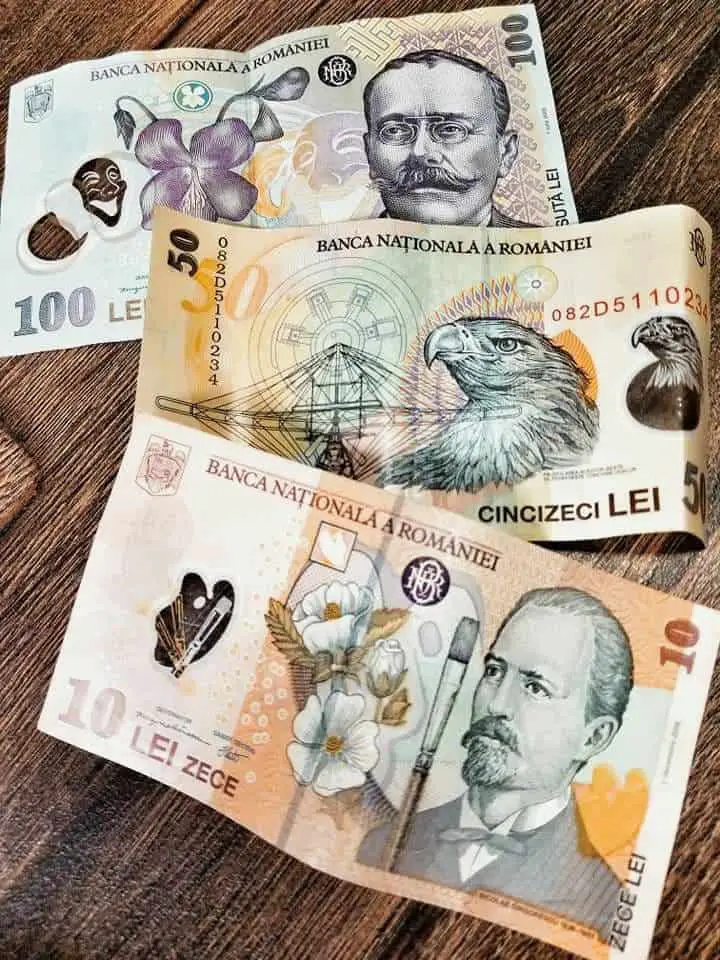
affordability
Is it expensive to live in Romania? No! In fact, living in Romania is extremely affordable if you are paid in Euro or USD (or something equivalent).
Some cities (Cluj-Napoca, Sibiu) are more expensive by Romanian standards. As in every country, prices will slightly vary from city to city.
Overall, everything from rent to groceries and all in between are significantly less expensive than in the West by roughly 25%. I get paid in USD, so when calculating the conversion rate I generally just divide by four to get a general idea.
If you want detailed information on what it costs to live in Romania, I’ve outlined it all for you in this post on cost of living in Romania. All good to know before moving to Romania!
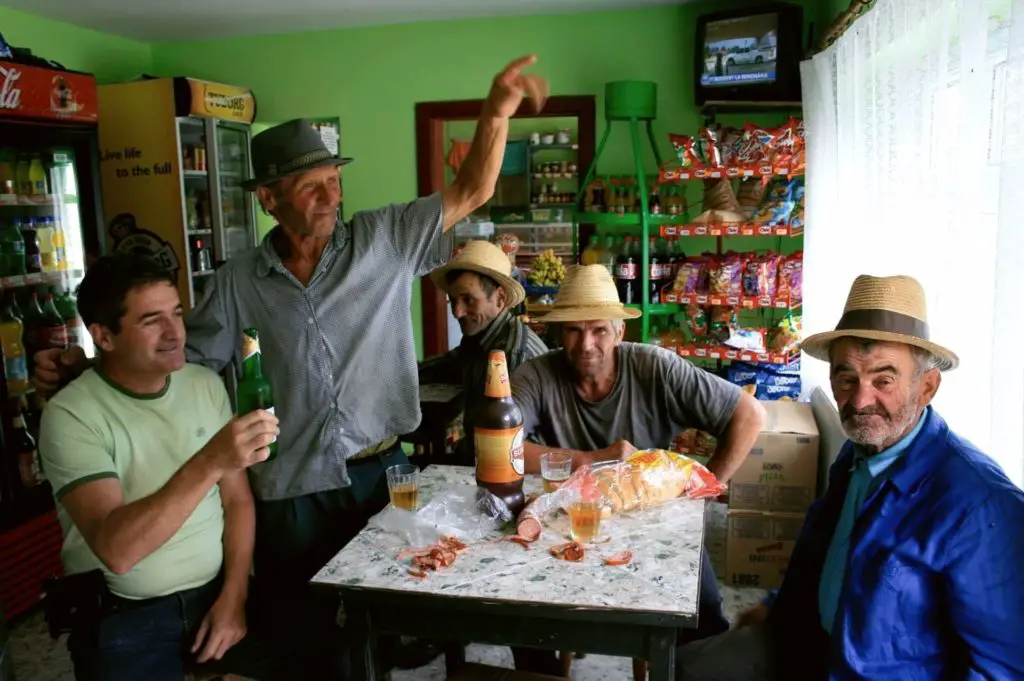
driving
Look on most travel blogs that feature Romania and you will undoubtedly read something about how crazy their drivers are. Well – yes and no. While living in Romania, I’ve only been truly scared for my life a handful of times while a passenger in someone else’s car (haha!).
The fact of the matter is that Romania doesn’t have many roads! There’s usually only one way to get from point A to point B, and that includes large trucks making deliveries. So, when you’re stuck behind a truck and it seems like it’s taking days to reach the next city, yah, it can be a little frustrating! Many impatient drivers will exhibit aggressive passing practices. You get used to it.
Understanding the infrastructure issues is definitely helpful to know before moving to Romania – particularly if you want to understand the local driving habits. That being said, Romania had the highest driving fatality rate in the EU in 2019. Be careful when driving in Romania!
Disclaimer – I have never dealt with Bucharest traffic, so I can’t attest to what may or may not happen on the roads there! I’ve only heard horror stories!
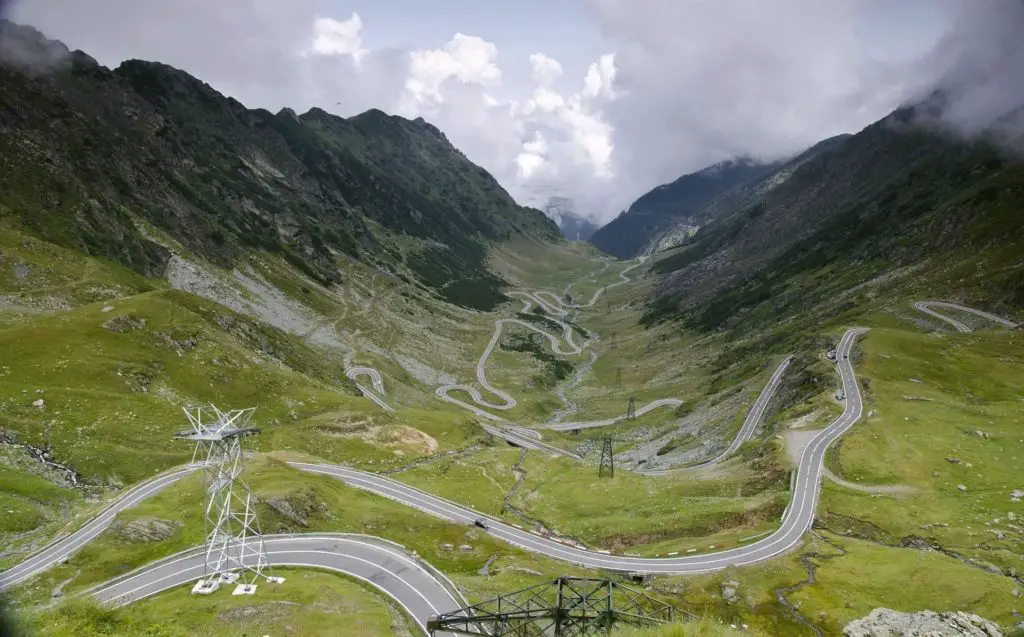
schengen status
This is a little complicated – Romania is a member of the European Union, but it is not included in the Schengen zone. Romania, Bulgaria, and Croatia are EU members that are currently trying to become part of the Schengen area, so this may change in the near future.
What this means is that you’ll have to show your passport when going to other EU countries – there is no free movement (as there is, for example, when traveling from Italy to Austria).
romanian language
Romanian is a Latin-based Romance language, so you’ll see many similarities if you’re familiar with Italian, Portuguese, French, or Spanish. They do have some odd sounds and different letters/accents that make pronunciation a battle.
In cities, you’ll find most everyone under 45 speaks some English. Still, do your best to learn some basic phrases – they will be valuable to know before moving to Romania. Plus, it’s just… you know…. polite. I do alright with Romanian when I’m alone, however, living in Romania would be much easier if I had a more solid grasp on the language.
roma vs. romanian
When you hear people talking about gypsies from Romania, they are not talking about Romanians – they are talking about Roma people. It’s a completely different ethnicity, so be careful, or you might piss someone off. You can learn a little more about the differences here.
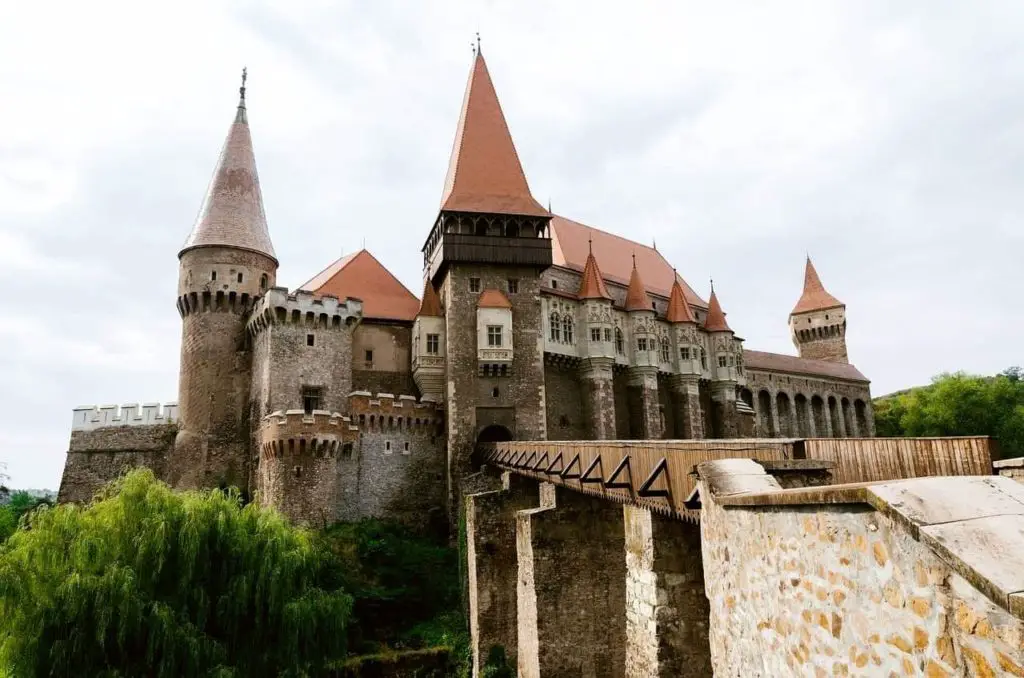
receiving packages
This is BY FAR my biggest pet peeve with living in Romania. If you order something online, you’ll get a window of dates during which the package should arrive. Don’t make any big plans on those days – because on one of the mornings, you will get a text message saying your package will be delivered. Between 9 and 17 usually. You can’t do anything during that time, because you need to be home to accept the package. It’s super frustrating (especially in the time of COVID-19 when I cannot go shopping for clothes and have to order things!). Some days when I’m expecting a package, I can’t even take a shower until after the package comes if I’m the only one home!
If you are getting a package from outside the EU, you will receive a slip in the mailbox and they will hold your package at the post office where they will do a customs check. Some customs offices (such as the one in Cluj-Napoca) open the package and briefly look inside, others don’t look (as in Sibiu). Of course, it also depends on the customs officer.
I will note that the times that my packages were inspected in Cluj, I had prescription medications in the box that the officer didn’t check (but clearly saw, as they were visible when the box was opened) – this was a prescription that, though prescribed to me, is not legal in Romania, so I’m not sure what would have happened if he had checked. I brought my prescription notes with me just in case.
vegan / vegetarian food
Finding plant-based food options in the bigger Romanian cities usually isn’t a problem (especially in the weeks leading up to Orthodox Easter). De post is the term used to describe vegan (fasting) food in case you need to know! It’s helpful to know that living in Romania is still possible even for vegan and vegetarian eaters.
I was impressed with the number of vegan options in both Sibiu and Cluj – even after Easter.
how to drink pălincă
Pălincă (or Țuică) is a very strong local spirit made from plums, apples, or some other kind of fruit.
One of the first times I went to a Romanian friends’ house for dinner, there were shot glasses of pălincă served. As an American, if it comes in a shot glass, we take it as a shot – i.e., one quick gulp. Much to my embarrassment, after clinking glasses to cheers, I took a shot and my friends all sipped theirs. Fail. Sip your pălincă!
Also worth noting – you know how some people have strong reactions to tequila, such as getting angry or super-fired up? Yeah….. this happens to me with tuica. Be careful!
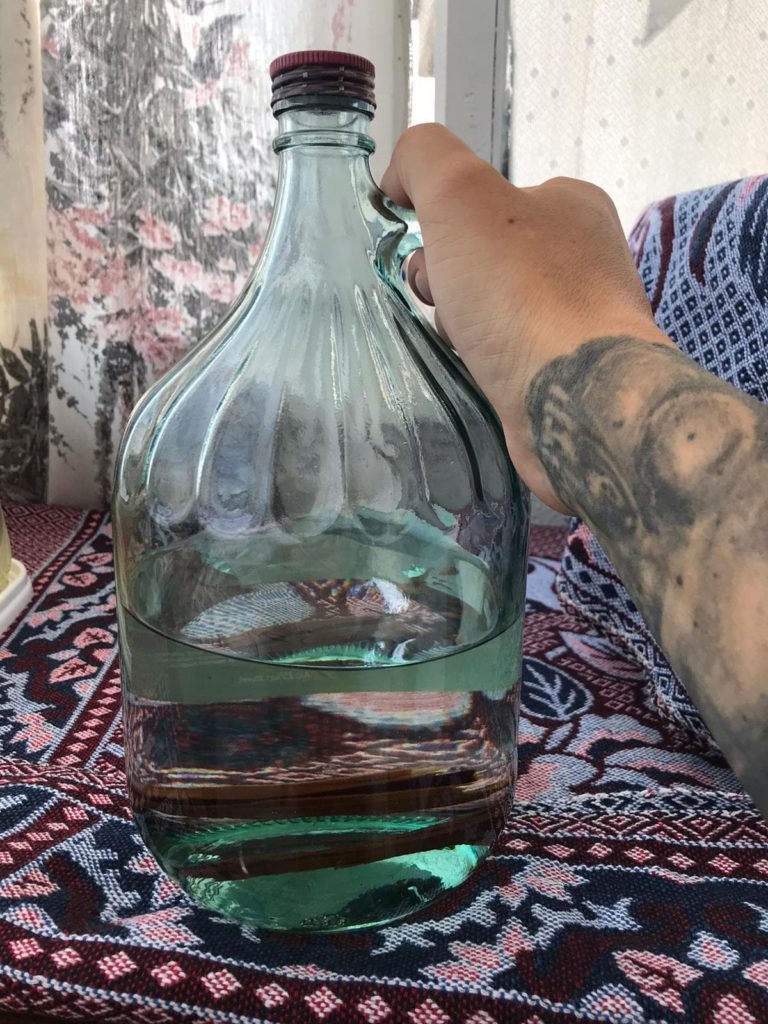
train travel
The trains here are super slow! If you have the option of taking a bus, it will likely be much quicker (and only very slightly more expensive). Romania is also a pretty big country, so if you’re traveling far, it might be wise to take a night train. Although if you’re living in Romania and have legal residency, it may be wise to purchase a cheap car, depending on how much traveling within the country you plan on.
wood mafia
When thinking about corruption in Romania, you’re likely imagining sweaty politicians crowded in café booths in Bucharest smoking cigars. At least, that was the visual I always got. Don’t get me wrong – political corruption here is absolutely a thing (isn’t that the case everywhere?).
However, there is another big issue going on in the northern Romanian forests of Suceava County on the border of Ukraine. This issue takes the form of large-scale wood trafficking. Yeah. You heard correct. To go more in depth is beyond the scope of this blog, so I’ll just leave this link here for you if you want to learn more about the wood mafia in Romania.
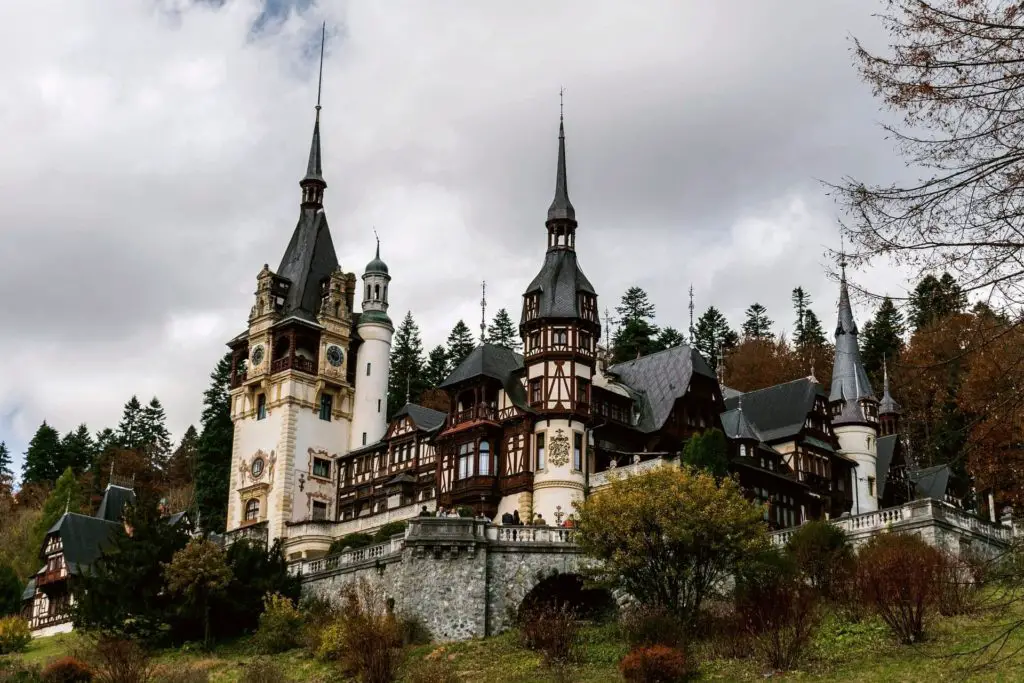
troubled history
If you are planning to move to (or visit) Romania, give yourself a crash course in Romanian history. You don’t need to become an expert on the subject, but knowing some basics will help you better integrate into life here.
The effects of communism are still fresh and some people, particularly the older generations, are still adapting to their new way of life. The Romanian Revolution that overthrew Communist leader Ceaușescu only happened in December of 1989 – just 30 years ago.
Learning a little about Romanian history has 100% prevented me from making some very ignorant and presumptuous comments.
electricity & outlets
In Romania the power plugs and sockets are of type F. The standard voltage is 230 V and the standard frequency is 50 Hz.
Adapters are helpful, but things such as phone chargers are better just purchased once you’re in the country (they’re a lot cheaper than in the West, as well). Just remember that most things will be cheaper here than in Western Europe or the States – so unless you’re really committed to a particular brand, better to wait to get what you need after you’ve been living in Romania for a bit.
taxis & uber
Taxis here piss me off a bit. If you’re arriving at a train station and your destination isn’t too far, no one will give you a ride because it is ‘too short’ – regardless of how much luggage you have. This happened the very first night I arrived in Sibiu, in a thunderstorm with a lot of luggage and a dog.
I had another poor experience with taxis in Cluj. Unlike rideshare services such as Uber or Bolt, the route is not predetermined. So, when my Romanian/Hungarian fiancé and I were speaking English in a taxi one day, the driver thought he could take advantage of us and take a convoluted route to get where we were going. I had no idea what was going on when Szilard began yelling at the driver in Romanian until I began to pick out some key words. They will screw you over for just a few lei.
Use a rideshare service if you’re in a major city. Uber and Bolt are available in Cluj-Napoca, București, Brașov, Timișoara, and Iași. They are almost always cheaper (Bolt is cheaper than Uber), and the drivers have to stick to a set route, so you won’t be taken advantage of if you don’t speak Romanian. This is definitely something to know before moving to Romania, particularly if you will live in a city without a car.
the food
Traditional Romanian food is pretty damn good. It’s fresh, bio, and (usually) prepared with a lot of love. It can be very rich, however, with a heavy emphasis on pork. There are also SO MANY delicious traditional soups to try. And be sure to try the unofficial national dish, sarmale, as well as the best Romanian dessert, papanași (pictured below).
You will undoubtedly be invited to a Romanian house for dinner at some point. Bring wine or flowers. And don’t be shy about eating once you’re there. If you have the good fortune to spend Christmas or Easter in a Romanian household, be prepared to eat a week’s worth of calories in an afternoon.
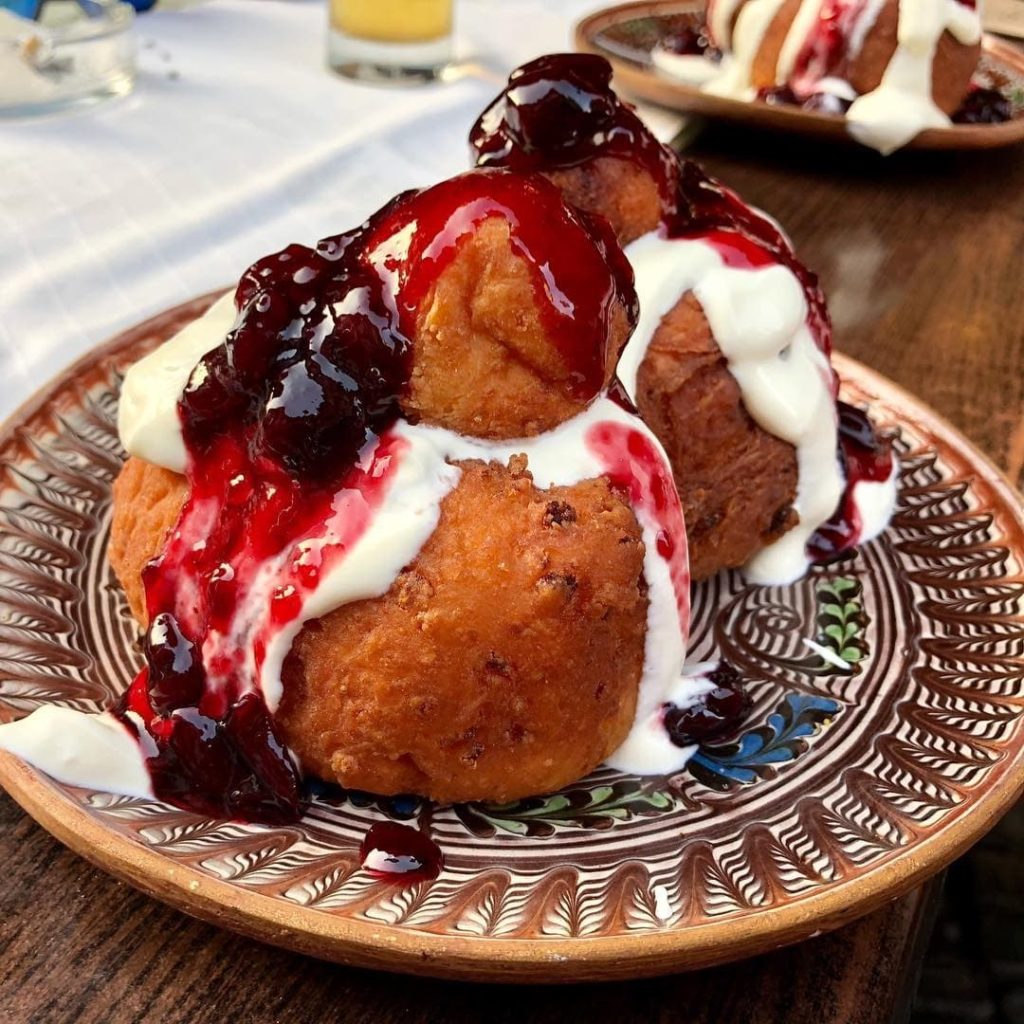
abundance of natural beauty
Romania has some pretty incredible mountain ranges and forests to explore. Not to mention, part of its border is on the Black Sea coast, so a beach vacation is not out of the picture. If you’re a nature buff, you’ll have a field day exploring all of the natural wonders of Romania. Make sure you get to the Danube Delta! Living in Romania is the perfect opportunity to explore the many natural wonders Romania has to offer, particularly since you’re not rushing around with a set itinerary.
Romania enjoys four seasons, so any time of year is great to visit.

UNESCO sites
Speaking of the Danube Delta, Romania has eight UNESCO World Heritage Sites. These include:
- Churches of Moldavia
- Dacian Fortresses of Orăștie Mountains
- Historic Center of Sighișoara
- Danube Delta
- Primeval Beech Forests of the Carpathians
- Monestary of Horezu
- Villages with Fortified Churches in Transilvania
- Wooden Churches of Maramureș
Living in Romania will provide ample time to tick each of these off your Romanian bucket list!
village life
Some villages in Romania seem to be frozen in time. You will see traditional homes, people dressed in traditional Romanian clothes, and yes, even horse-drawn carriages casually making their way down the streets.
Life in the villages is still something that I’m getting used to, when I get the opportunity to visit one.
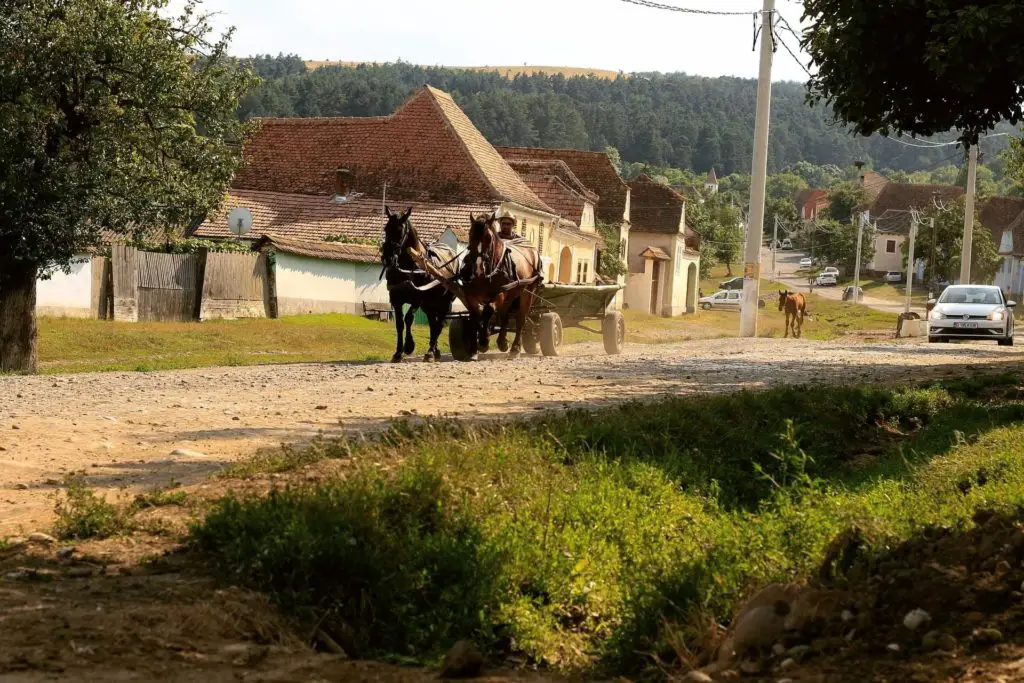
safety
Romania is a super-safe country. Exercise normal precautions when going out at night and alone and you’ll be just fine. Petty theft isn’t so prevalent, nor is gun violence (this is particularly refreshing for me, an American).
Do a little research on the particular city you plan to live in – a grasp on local safety and crime will be good to know before moving to Romania. As in any country, larger cities tend to have higher crime rates. Always trust your judgement and remove yourself from situations that feel unsafe. As a solo female, I feel comfortable going out alone at night.
helpful people
Not only is Romania an extremely safe country, its people are unbelievably helpful and friendly. When I first stepped off the train in Sibiu (after a 12 hour ride!) a woman noticed me struggling to get my heavy-ass suitcase up the stairs at the station. She came over and grabbed one side of the handle and helped me lug it to the top (I also had a dog in my backpack, so I was – and am – eternally grateful). This was just the first example!
One friend in Sibiu was always offering to help me make calls, translate, and navigate my way around the city.
Another friend Before he was my husband, fiancé (or even my boyfriend, for that matter) Szilard was looking for apartments for me in Cluj-Napoca while I was still in Sibiu, since I couldn’t get there to see them.
don’t go to bucharest first
OK, so this may not be the best advice since, if you are flying, you’re probably arriving at OTP, the international airport in Bucharest. I took a train from Budapest to Sibiu, so I missed out on this one.
Everyone I’ve spoken to, travelers and locals alike, have told me: If you want to like Romania, don’t go to Bucharest first. **Disclaimer – after publishing this, I’ve had a few people express to me how much love they hold for Bucharest. I’ve only been a handful of times at this point, and I stand by what others have told me. I personally didn’t care too much for Bucharest, but, to each his own!
If you’re looking for a city to live in Romania, try some of the other more developed cities: Cluj-Napoca, Sibiu, Brașov, Timișoara, and Iași.
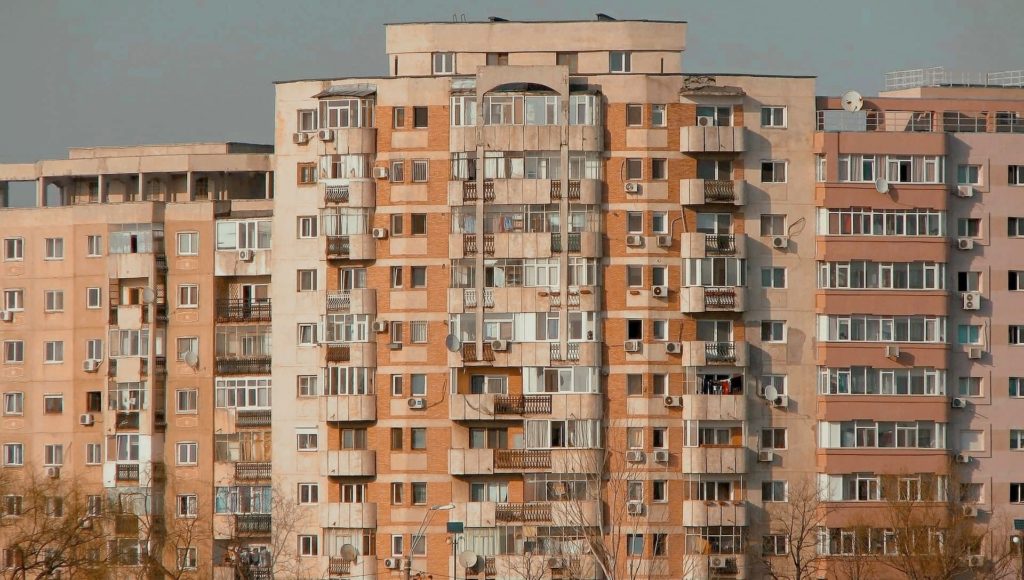
you can still enjoy the seaside!
If you’re familiar with the geographic location of Romania, you already know it’s one of the countries on the Black Sea. However, if Geography isn’t your forte, you’ll be pleased to learn that Romania boasts many seaside resort towns.
If you’re up for a party, head to Vama Veche, one of the most underrated beach destinations in Europe!
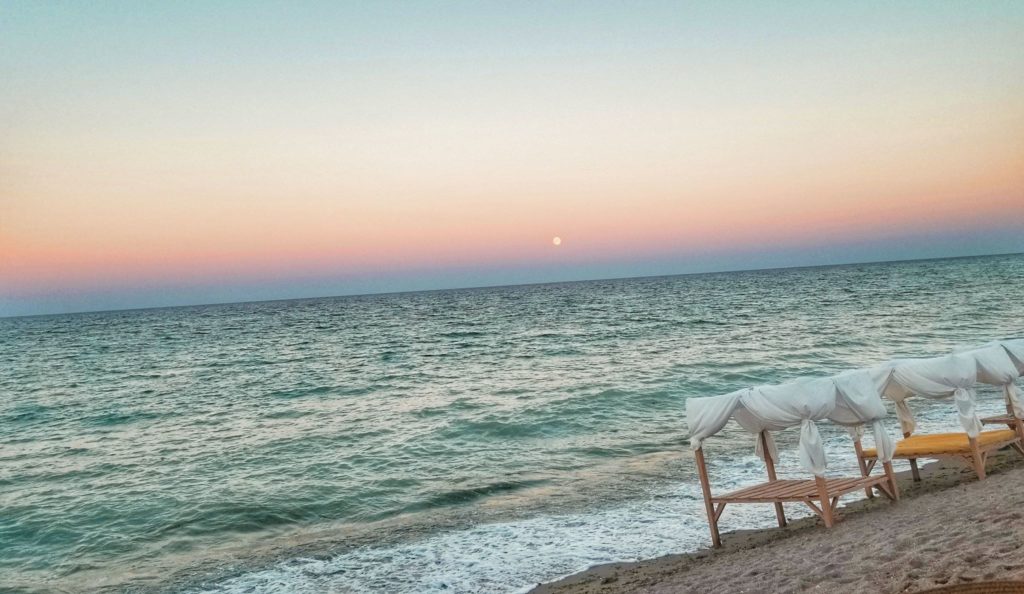
tampons
If you are used to the type with applicators, they can be difficult (if not impossible) to find. My female friends I’ve spoken to here don’t really use tampons because they’re uncomfortable – but of course some women do. So. If you are accustomed to using a certain type, be prepared to go on a hunt (depending on where you are living) if it matters to you. Shipping costs from your home country may also be something to know before moving to Romania!
be prepared to discuss your income
Virtually every Romanian I’ve met here has asked how much money I earn. I’m not entirely sure if this is because I’m American or if it’s just the norm regardless of nationality. Just, know that you will likely be asked this question when first meeting someone.
last names first
When you see peoples names written, whether it’s on a business card or on Facebook, some (not all) Romanians write their last name first. Since many Romanian names are unfamiliar to Westerners, it can lead to some confusion when figuring out peoples’ names.
apartment hunting in romania
Renting an apartment here is relatively straightforward. My current apartment actually started as an AirBnb, but due to the global lockdown, my hosts were gracious enough to offer it to me at a reduced price off of the AirBnb platform.
I am currently apartment-hunting in Cluj. All you need to rent as a foreigner is your passport – you don’t need any visa or residence permit paperwork.
From what I’ve heard, most apartments will already have utilities turned on, and moving in as simple as just paying the bills while they are still in the owner’s name. I will update this section as my apartment in Cluj is finalized!
Update: As promised, here’s the update on renting a long-term apartment in Romania. In some apartments, the internet and utilities remained in the landlords name. You have to take photos of the gas and electric usage to send to the landlord, and he or she will send you photos of the final bills, which are added to your monthly rent. This is a super beneficial aspect of living in Romania, as changing utilities into your own name can be a pain in the ass. I did encounter one apartment that required the tenant to make their own Digi account (Digi is the main internet and cable provider in Romania). All helpful things to know before moving to Romania!
Want more information on moving to Romania? Our friends over at wherecani.live have some helpful information on visas and stay permits, citizenship, and more.
pin it
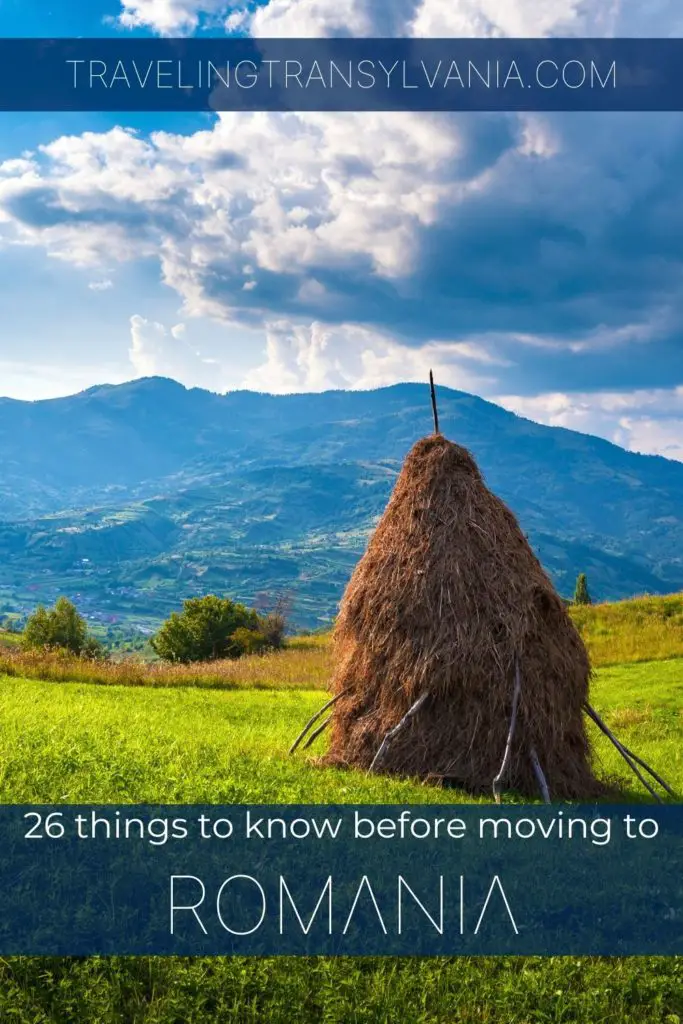
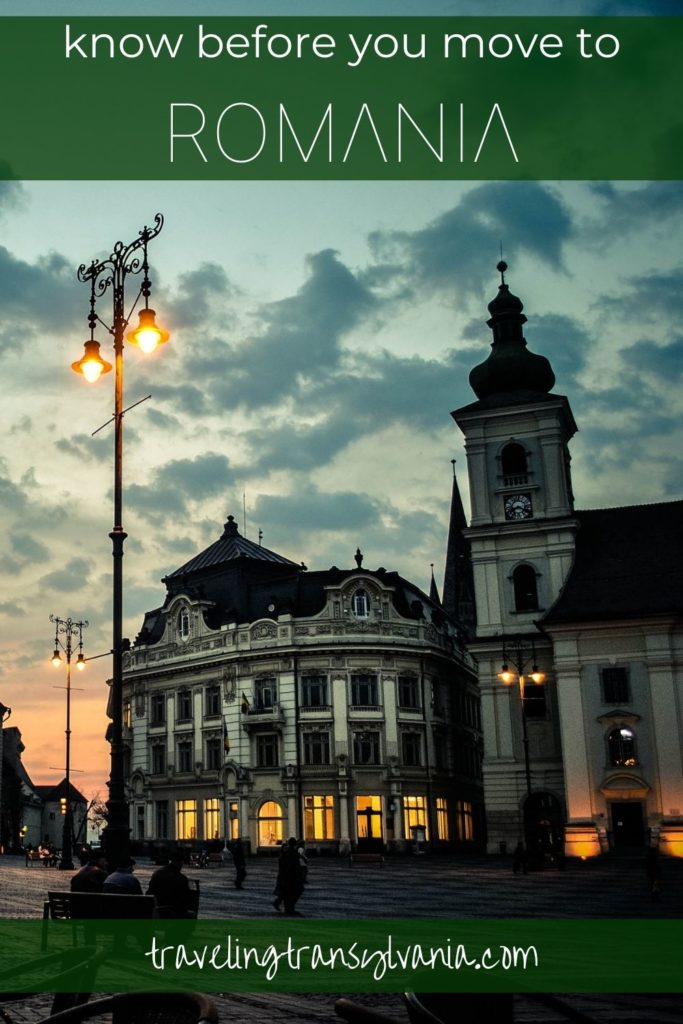
There you have it. Everything I’ve learned (thus far) about what to expect as a foreigner living in Romania. Of course, my experiences are limited to the places I’ve lived in, so there will always be exceptions. Have you lived in Romania as a foreigner? Drop a note in the comments what you would’ve liked to know before moving to Romania! xx

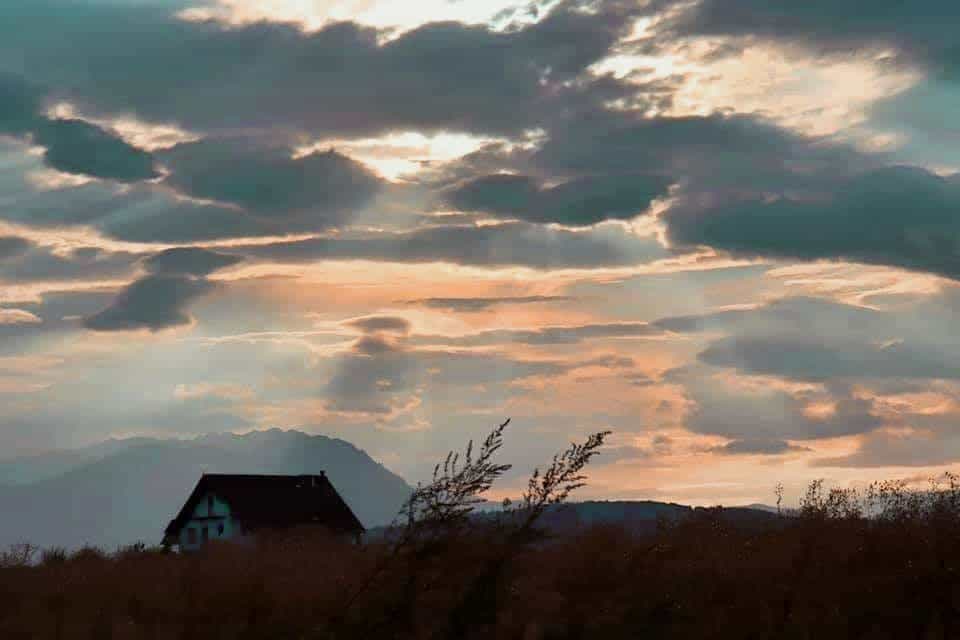

This was incredibly helpful! Can you touch on traveling to surrounding countries from Romania?
Hey Miranda! Are you thinking of moving here? Under normal circumstances (i.e., not in the times of COVID), trains to and from Hungary are common, particularly from Transylvania. I entered Romania via Hungary, taking a 10+ hour train from Sibiu to Budapest. It would have been shorter, but I actually held up the train due to my time in Italy (this was right at the beginning of March 2020). Szilard used to go to concerts across the border for a couple of days, no problem, prior to the pandemic. Getting to Moldova and Ukraine is also accessible via public transportation from the northern border. To get to Bulgaria, most people drive though there are trains as well. In order to get to Serbia, however, there are no trains, you must take a train to the border, take a taxi across, and then get on another train. I think that Hungary and Bulgaria are probably the easiest border crossings to deal with based on what I’ve been told.
There are also a few budget airlines (TAROM and WIZZ) that operate out of the smaller airports in the country and have flights all over Europe for very affordable prices (think RYANAIR). I hope this helped!
This post was really helpful. I am happy I came across this. There is a very good possibility I will be moving to Romania within the next year or two with my husband who is from Romania. We are currently living in Canada. Even though I am married to him, do I still need to apply for any residency like he had to do here? Also, how long did it take you to “adapt”? Thanks!
Hi Kristina! I’m glad you found some helpful info. Congrats on the potential move! Romania is quite the experience.
Even though your husband is Romanian, you will still need to get a residence permit. It’s pretty straightforward for US citizens, I imagine it must be similar for Canadians. You’ll need your marriage certificate, translated and apostilled if necessary, a lease in Romania that has your name listed, a health certificate saying you are not a public health risk from a Romanian doctor, an application and a few fees. My experience with immigration in Cluj-Napoca has been pretty good, but I can’t attest for other cities.
As for adapting…. ha! Well, I’ve been here now since March 2020 and I’m not sure if it’s the pandemic or just a normal amount of time, but I am still not fully adapted. I suggest taking Romanian lessons (if you don’t already speak it) once you determine you are definitely moving. You can get by in most cities with a handful of phrases and English, but in terms of making friends and having real conversations with people, you’ll need to learn Romanian (I am still battling the language barriers, hah!).
Feel free to message me with any other questions you might have! And good luck! xx
Cheers!
Jade
The article is very good, but I must say that Bucharesti is one the places I love the most in Romania. Try walking down Calle Victorie on a Sunday and taste the beauty of it.
I will try that! As I mentioned in the post, I personally haven’t explored Bucuresti at all, but this is the feedback I’ve gotten from local friends as well as fellow travelers. To each his own, I have yet to discover it for myself! One thing I will say – the traffic is brutal, haha! Thanks for checking out the site :)))